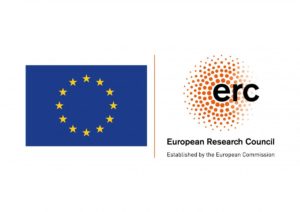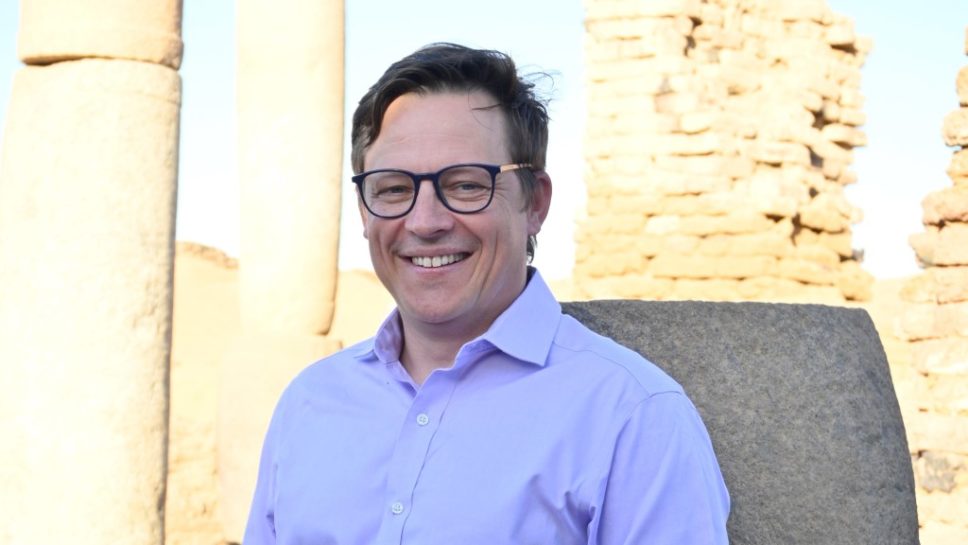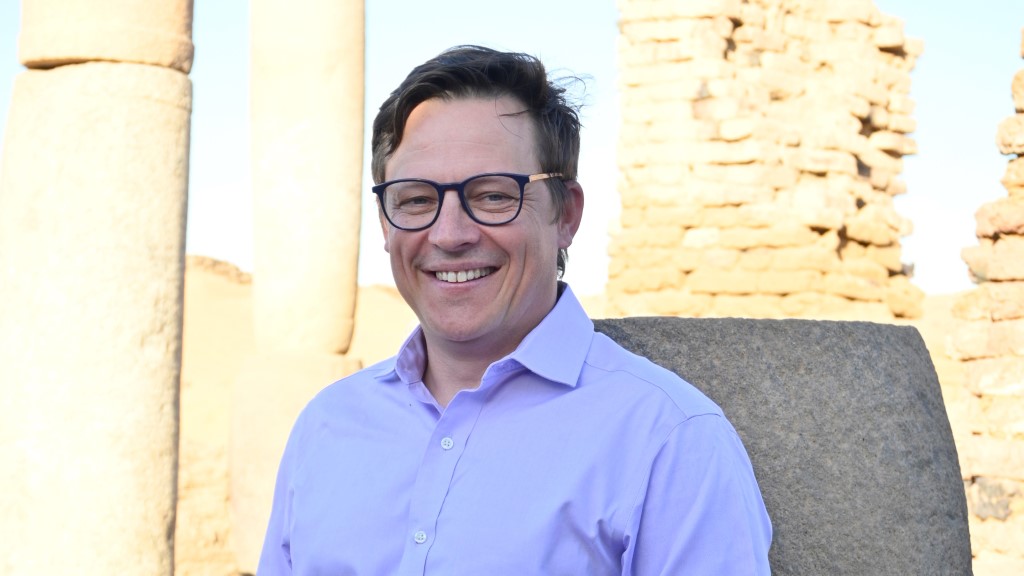The European Research Council has awarded an ERC Consolidator Grant to Dr. Artur Obłuski’s project “Afropolis Tungul: Urban biography of a cosmopolitan African capital”. The project will be based at the Polish Centre of Mediterranean Archaeology, University of Warsaw.
PCMA UW is also home to Dr. Obłuski’s first ERC grant, an ERC Starting Grant awarded in 2017. Both projects focus on the study of urban centers, and the communities that inhabited them, in a diachronic perspective using the case study of Tungul (Old Dongola) in Sudan – a Nubian metropolis that existed for more than one and a half thousand years.
– “The project’s acronym captures its essence. Afropolis stands for a city that was built at the intersection of two great cultural spheres – that of the ancient Mediterranean world and Africa. The people who inhabited the city were extremely effective in leveraging their geographical location, skillfully drawing on the two resource bases to create a social, political and cultural organism that was unique in global terms. Tungul is the native name of this urban center, which survived for 15 centuries. One of our aspirations is to tackle the biased and erroneous colonial perceptions of Africa as a continent without history and without civilization. Tungul and the kingdom of Makuria were established five hundred years before the emergence of Poland,” Artur Obłuski explains. The “Afropolis Tungul” project will focus on the period when the city was the capital of the Christian kingdom of Makuria (4th–15th cent.), but it will also incorporate the results of the earlier ERC project, UMMA, which studied the most recent 500 years of the city. The project is a multidisciplinary attempt at gaining a profound understanding of settlement persistence in the Nile Valley: Why was Tungul established in this particular place? What factors allowed it to survive for so long, despite harsh environmental conditions and dynamic political changes?
The “urban biography” will portray the life of the capital city on a variety of levels: urban planning, environmental and demographic. – “In my research I want to go beyond traditional narratives embedded in ecological or political determinism,” the head of the project points out, adding, – “By giving equal attention to climatic, environmental, socioeconomic and political factors, I hope to offer new perspectives for broader archaeological and theoretical studies of urbanism and complex societies.”
While most of the work will focus on the collection and analysis of data on Tungul during the Makurian period (4th–15th cent.), the project’s research goals require combining this material with data on the Funj period (16th–19th cent.) obtained over the course of the ERC Starting Grant UMMA project, and other information gathered during the PCMA UW expedition’s excavations at the site.
The ERC has awarded €1,999,950 for the five-year project which will start in January, 2024. ERC Consolidator Grants funded by the European Union under Horizon Europe, are intended for successful researchers, with seven to 12 years’ experience since completion of PhD, who build excellent research teams.
This was the case with Dr. Obłuski’s first ERC grant: he created a successful research team at the PCMA UW, by inviting young specialists in archaeology, ceramology, bioarchaeology and epigraphy, from Poland and abroad. Since joining the PCMA UW, three of them (Agata Deptuła, Katarzyna de Lellis-Danys and Maciej Wyżgoł) have defended their doctoral theses and two more dissertations are in their final stages (Adrian Chlebowski and Bogusław Franczyk). All team members have published articles in international journals and book chapters in volumes co-edited by Artur Obłuski and Dorota Dzierzbicka, the team’s field director. The UMMA team was the driving force behind the organization of the 15th edition of the largest international Nubiological conference – the 15th International Conference for Nubian Studies – at the University of Warsaw in 2022. UMMA has also proved to be an incubator for other projects, as team members successfully apply for grants for their own research projects related to Old Dongola (National Science Centre grants: PRELUDIUM – Maciej Wyżgoł, OPUS – Robert Stark, internal UW IDUB grants – Katarzyna de Lellis-Danys, Robert Stark, Agata Deptuła, Maciej Wyżgoł).
Artur Obłuski, PhD, is an archaeologist specializing in the study of medieval Nubia. He has been the director of the PCMA UW since 2018, having previously headed the PCMA UW Research Centre in Cairo. He advocates a change in the approach to archaeological research in Africa and the Middle East from considering it as a purely scientific endeavor towards using heritage to foster economic development of local communities and their active involvement in the research process.
He has received grants from the National Science Center of Poland, as well as, among others, the Columbus Scholarship from the Foundation for Polish Science held at the Oriental Institute, University of Chicago. He received the first and only ERC grants in Poland in the field of archaeology. In 2017, he obtained an ERC Starting Grant for the project “UMMA – Urban Metamorphosis of the community of a Medieval African capital city.” In 2022, he received the Public Choice Award in the ERC Public Engagement with Research Award competition for sharing the results of his research through collaborative archaeology. He also received the Prime Minister’s Award for Outstanding Scientific Achievement in 2021.
-

-
- Read more about Old Dongola
- Find the project on our social media: #AfropolisTungulERC
- See the press release (PDF)
- Read the news item on University of Warsaw website


